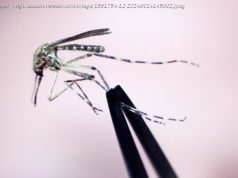I’ve never seen automakers as nervous in a good — almost great — year as they were during 2018. Healthy profits seldom coincide with plant closures…
I’ve never seen automakers as nervous in a good — almost great — year as they were during 2018. Healthy profits seldom coincide with plant closures and buyout offers, but they fought for headlines this year.
Maybe the industry’s leaders actually learned something from the Great Recession, and are battening the hatches before the next storm hits.
We’d better hope so, because there are as many challenges as bright spots in the 2019 outlook.
As 2018 ends, cars — traditional sedans, hatchbacks, coupes and convertibles — fell to just 29 percent of November sales, according to KBB.com. Further decreases are likely throughout 2019. A few years ago, cars were locked in at over 50 percent of new vehicle sales.
Nobody knows where the bottom is, but Ford and General Motors took the hint and said they’d stop building most traditionally styled cars, including the Taurus, Focus, Cruze and Impala. The companies have struggled to sell those vehicles profitably, due to strong competition and a history of building poor vehicles in the ‘80s and ‘90s.
Concentrating on more profitable SUVs and pickups may seem reasonable — Fiat Chrysler led the move in 2017 — but Ford and GM had stuck their heads in the hornet’s nest.
GM CEO Mary Barra found herself summoned to Capitol Hill to explain the idling of several factories.
More: General Motors to close Detroit, Ohio, Canada plants
More: Donald Trump tears into GM: Mary Barra’s decision was ’nasty‘
Eight months after Ford announced its plan in April, my mail indicates buyers still think Ford plans to force them to buy F-150 pickups and huge Expedition SUVs, rather than creating new vehicles to replace the outgoing cars.
Explaining the growth that follows pruning the product line should be high on both companies’ agendas in 2019.
Barely a year after it became the world’s top-selling automaker, the Renault-Nissan-Mitsubishi Alliance is tottering. It may be years before we know if former Chairman Carlos Ghosn and his top lieutenant, American Greg Kelly, actually committed any of the financial misdeeds Nissan and the Japanese government allege.
More: Japanese prosecutors file new breach of trust allegation against former Nissan chairman Carlos Ghosn
More: Nissan, former chairman Carlos Ghosn, charged with underreporting pay
This much is certain: Nissan had the executives jailed and jumped at the chance to push its claim for greater status within the alliance, of which Renault is the senior member, despite selling fewer vehicles and making less money.
Nissan’s dissatisfaction is understandable, but it and Mitsubishi became Renault’s junior partners by managing themselves to the brink of obliteration. Renault may not be a great carmaker, but it seems to be darned good at running other car companies.
Recent history suggests automakers determined to be biggest almost always regret it.
Consider: GM — decades of mismanagement culminating in a bailout; Toyota — a tide of quality problems that crested when the company blamed uncontrolled acceleration on bad floormats; and VW — billions of dollars in fines for falsifying diesel emissions results.






